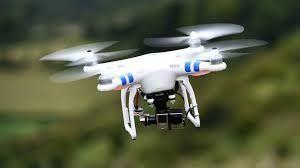
Russian Company Unveils First Bio-Drones
The Russian company Neiry has announced the development of so-called“biodrons” - pigeons equipped with brain-implanted neural interfaces that allow operators to remotely influence and direct their flight. According to the developers, the technology is already ready for pilot deployment in infrastructure monitoring, Azernews reports.
The system relies on custom-made electrodes implanted into specific regions of the birds' brains. These electrodes are connected to a stimulator and a controller housed in a small electronic“backpack” mounted on the pigeon's back. The surgical procedures are performed in a streamlined, assembly-line manner using a specialized stereotactic rig, which enables precise electrode placement without the need for costly CT or MRI imaging. By stimulating targeted brain zones, an operator can guide the bird according to predefined flight tasks. Unlike traditional animal training, control becomes possible immediately after surgery.
“The PJN-1 biodron differs from a regular pigeon only by a thin neural-interface wire extending from its head and a lightweight electronics pack on its back. Its core purpose is to support various types of monitoring - environmental, industrial, search-and-rescue missions, and even contributing to additional safety surveillance,” the company stated.
A key advantage of biodrons over conventional UAVs is their endurance: the birds continue to live natural lives, while the electronics are powered by compact solar panels. According to the developers, the risk of failure is no greater than the risk faced by any ordinary pigeon, making biodrons suitable for use even in dense urban settings.
The technology is being positioned as a long-term solution for monitoring remote facilities such as power lines, pipelines, and gas distribution nodes.
Neiry emphasized that, unlike similar experimental efforts abroad, their project has already advanced to the stage of industrial implementation. The cost of a biodron is said to be comparable to that of traditional drones in the same class, while vastly surpassing them in autonomy. The company is open to collaborating with drone operators and is exploring opportunities to introduce the technology to international markets.
Interestingly, the announcement has sparked renewed debate among scientists and ethicists, who note that the concept blurs the line between biology and robotics - raising questions about the future of“cyborg” wildlife and its potential applications far beyond infrastructure monitoring.
Legal Disclaimer:
MENAFN provides the
information “as is” without warranty of any kind. We do not accept
any responsibility or liability for the accuracy, content, images,
videos, licenses, completeness, legality, or reliability of the information
contained in this article. If you have any complaints or copyright
issues related to this article, kindly contact the provider above.


















Comments
No comment